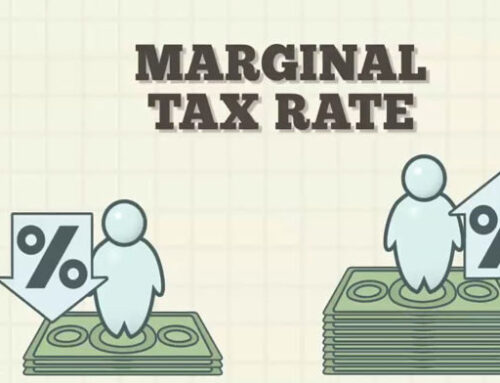Maintaining accurate marital status records with the Canada Revenue Agency (CRA) and, if applicable, Revenu Québec, is crucial for optimizing your benefits and preventing potential tax implications for married, whether you are married or in a common-law relationship.
Reporting Marriage to the CRA and Revenu Québec: What You Need to Know
When you tie the knot and enter the exciting journey of marriage, it’s important to consider the impact it can have on your tax situation. Informing the Canada Revenue Agency (CRA) and Revenu Québec about your change in marital status is crucial to ensure you maximize your benefits and avoid any potential tax issues.
Both the CRA and Revenu Québec require that you notify them of your marital status change by the end of the month following the month in which the change occurred tax implications for married. For instance, if you get married in October 2020, you must inform the CRA and/or Revenu Québec no later than November 30, 2024.
A change in marital status can have implications on the benefits and credits you can claim on your tax return. Keeping the CRA and Revenu Québec updated will help you take full advantage of any eligible claims and prevent any erroneous claims that may result in having to repay the government.

Understanding the Distinction Tax Implications for Married: Marriage vs. Common-Law Partnership
The differentiation between being married and living in a common-law relationship comes with a few variations in the rules. For married couples, they can claim their marital status as soon as they have taken part in a civil or religious ceremony, regardless of whether or not they have been cohabitating tax implications for married. On the other hand, for couples in a common-law relationship, there is a requirement to have lived together continuously for 12 months to be considered common-law for tax purposes. However, if you have children together, you are classified as common-law as soon as you start living together.
Tax Implications for Married of Separating from a Spouse or Common-Law Partner
When you separate from your spouse or common-law partner, it’s important to understand the impact it can have on your taxes. Here’s what you need to know:
For Common-Law Relationships: To be considered officially separated by the CRA and Revenu Québec in a common-law relationship, you and your partner must be apart for at least 90 days. In the year of separation, the claim for the spouse or common-law partner amount is calculated using your partner’s net income before the date of separation, rather than the entire year.
If you reconcile within the 90-day period, there are no tax implications to be concerned about. However, if you had custody and control of a dependent and were not living with or financially supported by your spouse during the separation, you may be eligible to claim an amount for the eligible dependant.
For Legal Marriages: If you and your spouse are legally married, you will only be considered officially separated by the CRA and Revenu Québec if you get a divorce, even if you have lived apart for 90 days. However, please note that certain credits and deductions may no longer be available to you if you have been separated for at least 90 days.
It’s important to consult with a tax implications for married professional or review the specific tax guidelines to ensure you navigate the tax for married implications of your separation accurately.
Also read: Are you at risk of being penalized with the Underused Housing Tax?
Updating Your Relationship Status with the CRA and Revenu Québec
To ensure that your tax records reflect your current relationship status, here’s how you can update the information with the CRA and Revenu Québec:
Updating Your Relationship Status with the CRA:
- Through My Account: Log in to the CRA’s My Account service, go to the Personal profile section, and click on the Update button in the Marital status section.
- By Phone: Call 1-800-387-1193 to speak with a CRA representative who can assist you with updating your relationship status.
- By Mail: Complete and mail form RC65: Marital Status Change to the tax implications for married center that assesses your return.
Updating Your Relationship Status with Revenu Québec:
The process for updating your relationship status with Revenu Québec may vary depending on the benefits you receive. If you receive child assistance payments, contact Retraite Québec at 1-800-667-9625. Additionally, you can use Revenu Québec’s online Change in Conjugal Status form for tax implications for married.
Impact on Tax Credits and Benefits: When you marry or enter into a common-law relationship, your tax credits and benefits may be affected. The CRA and Revenu Québec consider the combined earnings of both spouses when determining eligibility and allocation of credits and benefits. For instance, childcare expenses can only be claimed by the spouse or common-law partner with the lower net income tax implications for married. Changes in marital status can also impact Canada Child Benefit (CCB) and GST/HST payment amounts.
On a positive note, as a spouse or common-law partner, you may be eligible for various credits and benefits that can increase your refund. These include the spouse or common-law partner amount, combining medical expenses and charitable donations, contributing to your spouse’s RRSP, and splitting pension income.
Ensure you review the specific guidelines and consult with a tax implications for married professional to understand how your relationship status affects your tax situation accurately.

Also read: Blogger Tax Deductions: Do’s and Don’ts
Filing Taxes: Can My Partner and I Submit One Return?
When it comes to filing taxes, the Canada Revenue Agency (CRA) requires that both you and your spouse or common-law partner submit your own individual tax returns. However, you do have the flexibility to choose between preparing separate returns or opting for a joint return.
Choosing to file your taxes together with your partner can potentially lead to increased tax savings and reduced tax liability. This option, commonly known as a coupled return, allows you to combine your financial information and take advantage of various tax benefits and deductions ax implications for married available to couples.
To gain a better understanding of the process for both individual and spousal tax returns, it is advisable to consult the CRA guidelines or seek assistance from a tax implications for married professional. They can provide valuable insights tailored to your specific circumstances, helping you make informed decisions regarding the most advantageous approach for filing your taxes.
Recent Posts
FAQ
Can my partner and I file our taxes together?
Yes, you have the option to file your taxes together with your partner, commonly referred to as a coupled return. By combining your financial information, this approach can potentially result in increased tax savings and reduced tax liability. It allows you to take advantage of various tax benefits and deductions that are specifically available to couples.



